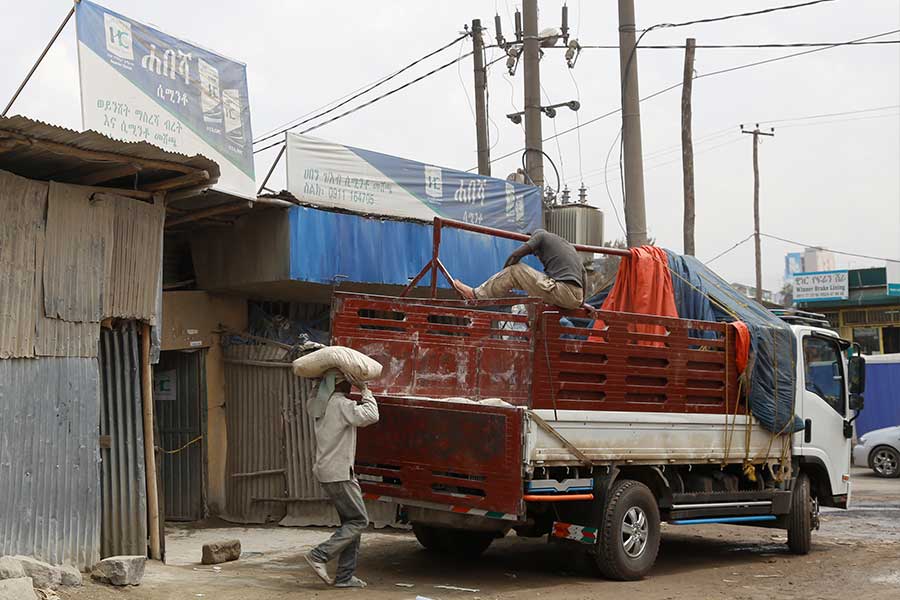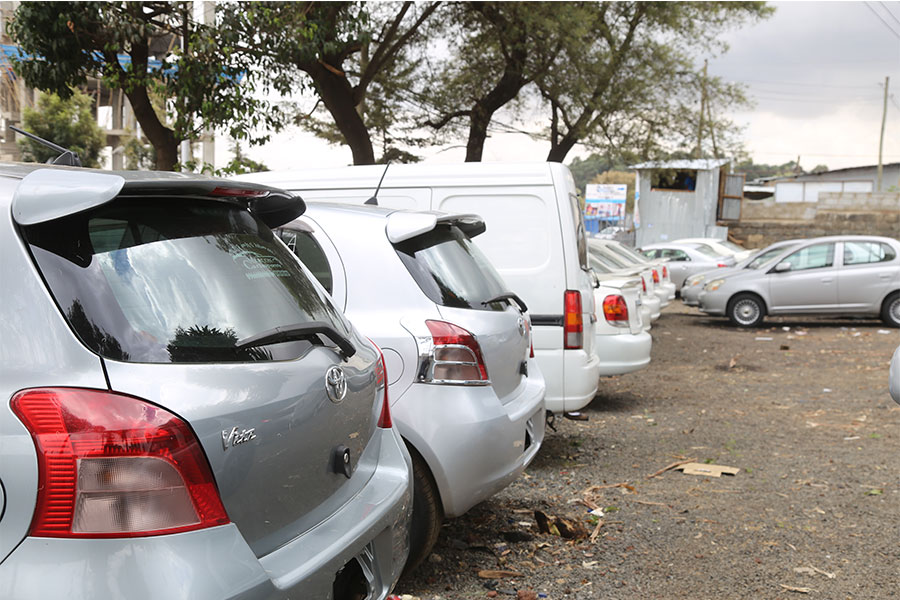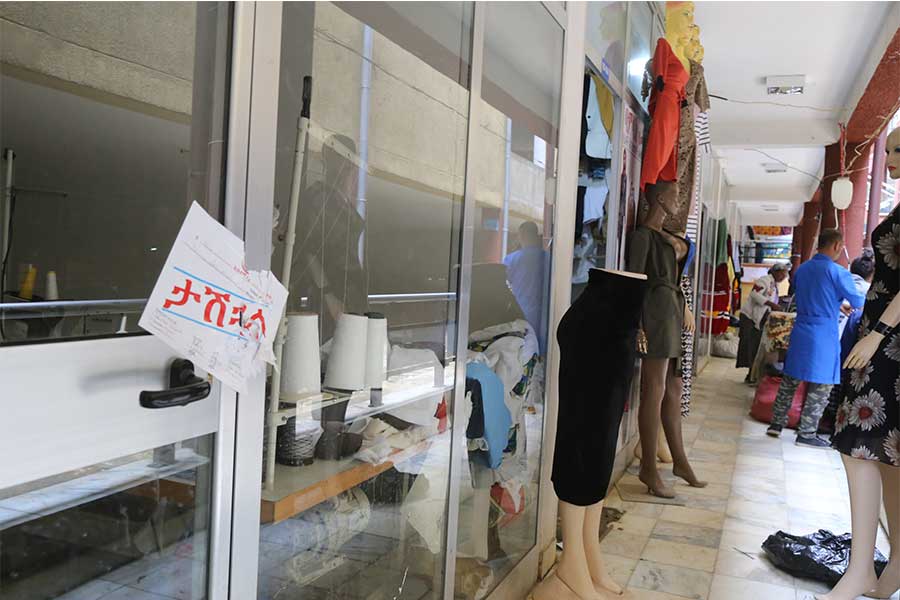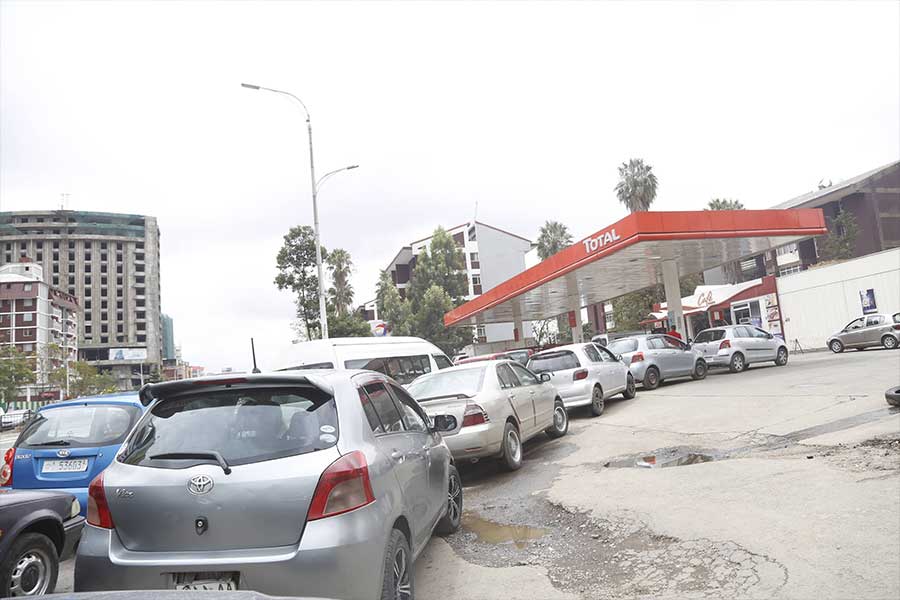
Mar 26 , 2022
By Christian Tesfaye
It is not often that Ethiopians look to Egypt with envy. But a recent move by the Egyptian government to fix bread prices has gotten some people in Ethiopia a bit envious. Look at the Egyptians, being shielded from blood-thirsty businesses and their exploitative pricing by a concerned government, some say.
The sentiment is understandable, as are the actions of the government of the North African country. Egypt and bread go a long way. The country, despite managing to export food products to Ethiopia, a country much richer in agricultural resources, is largely a desert. In spite of its best efforts, Egypt does not produce much, even when it comes to the cereal used to make its staple food – bread. Egypt is the biggest importer of wheat in the world, getting 80pc of it from Ukraine and Russia.
As the prices of wheat are increasing worldwide, it sends a shiver down the spine of the Egyptian government. Political instability and even revolutions have happened because of an increase in bread prices, including in 2011. In 1977, Egypt had the “Bread Intifada,” a riot in major cities after subsidies were cut. They only stopped after the subsidies were reinstated. President Abdel Fattah Al-Sisi would like to avoid this, thus deciding to fix non-subsided bread prices.
Is it a good idea? Should Ethiopia emulate this?
Populism is fashionable in Ethiopia. People feel the pinch from rising food prices, then they want the government to wave a magic wand and make things better. That magic wand usually is price controls. They do not consider that the real problem is a supply shock. The country is not producing nearly as much to feed itself despite two-thirds of the labour force working in the agriculture sector and Ethiopia being blessed with enough resources to be an exporter of wheat.
People get hungry, then get angry and eventually want to blame someone. The easy thing to do for the government is to place price controls, and when shortages start to appear, blame it on greedy intermediaries and businesses. This is the lazy thing to do and the most politically expedient. It is much harder to explain why the rise in prices is a problem of economics, not enforcement, and that what people believe should happen would worsen the situation.
How would it exasperate the problem?
It is a simple matter of supply and demand. Suppliers are only interested in supplying what is demanded, and consumers are only interested in a good or service in as much as they can afford it. They meet in the middle, the price and quantity equilibrium. This does not happen so neatly in the real world, and exact equilibrium is rarely achieved, if ever. But this theory still holds up well and buyers and sellers settle on a certain price most of the time.
Enter price controls. The whole thing is out of whack, especially on the supply side. When the price of goods and services is fixed artificially low, the demand will go up. Under normal circumstances, supply will as well. But when prices are controlled, higher demand is a meaningless incentive for suppliers.
There are also other problems. The good or service will move into the informal market, where prices are unregulated and most likely higher. Suppliers will start to hoard to sell it illegally.
What about the police? They will surely catch and apprehend such greedy businesses, no? But how many police officers are there to enforce price controls in a country of over 100 million? More importantly, how many officers on civil servant wages are there not susceptible to bribes and kickbacks to properly enforce price controls?
All of this will create a shortage. Sure, Ethiopians will get bread at a lower price, but only if they find the product or do not mind waiting in line for hours.
There is a crucial caveat here. While price controls are generally a terrible idea, an exception needs to be made for low-income households on essential food items. This needs to be implemented narrowly and selectively. There are already promising programmes that can be expanded and be made more efficient. Subsidies being delivered through the Sheger Bread Bakery is one example, which is being compensated through the Addis Abeba City Administration. Even better is the school feeding programme in the capital, a social welfare programme that needs to be scaled nationwide.
Such programmes are much less likely to cause shortages or cause an epidemic of hoarding. But blanket price controls on non-subsidised goods are a sure-fire way of making matters worse.
PUBLISHED ON
Mar 26,2022 [ VOL
22 , NO
1143]



Fortune News | Jun 14,2020

Commentaries | Dec 04,2022

My Opinion | Dec 30,2023

Fortune News | Oct 23,2021

Fortune News | Mar 09,2019

Featured | Sep 28,2019

Fortune News | May 21,2022

Radar | Dec 28,2019

Agenda | Feb 20,2021

Photo Gallery | 178956 Views | May 06,2019

Photo Gallery | 169154 Views | Apr 26,2019

Photo Gallery | 160024 Views | Oct 06,2021

My Opinion | 137127 Views | Aug 14,2021
Commentaries | Oct 25,2025

Dec 22 , 2024 . By TIZITA SHEWAFERAW
Charged with transforming colossal state-owned enterprises into modern and competitiv...

Aug 18 , 2024 . By AKSAH ITALO
Although predictable Yonas Zerihun's job in the ride-hailing service is not immune to...

Jul 28 , 2024 . By TIZITA SHEWAFERAW
Unhabitual, perhaps too many, Samuel Gebreyohannes, 38, used to occasionally enjoy a couple of beers at breakfast. However, he recently swit...

Jul 13 , 2024 . By AKSAH ITALO
Investors who rely on tractors, trucks, and field vehicles for commuting, transporting commodities, and f...

Oct 25 , 2025
The regulatory machinery is on overdrive. In only two years, no fewer than 35 new pro...

Oct 18 , 2025
The political establishment, notably the ruling party and its top brass, has become p...

Oct 11 , 2025
Ladislas Farago, a roving Associated Press (AP) correspondent, arrived in Ethiopia in...

Oct 4 , 2025
Eyob Tekalegn (PhD) had been in the Governor's chair for only weeks when, on Septembe...

Oct 25 , 2025 . By YITBAREK GETACHEW
Officials of the Addis Abeba's Education Bureau have embarked on an ambitious experim...

Oct 26 , 2025 . By YITBAREK GETACHEW
The federal government is making a landmark shift in its investment incentive regime...

Oct 29 , 2025 . By NAHOM AYELE
The National Bank of Ethiopia (NBE) is preparing to issue a directive that will funda...

Oct 26 , 2025 . By SURAFEL MULUGETA
A community of booksellers shadowing the Ethiopian National Theatre has been jolted b...